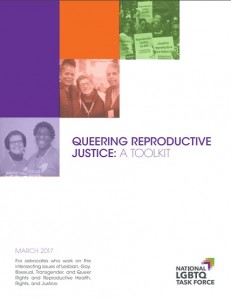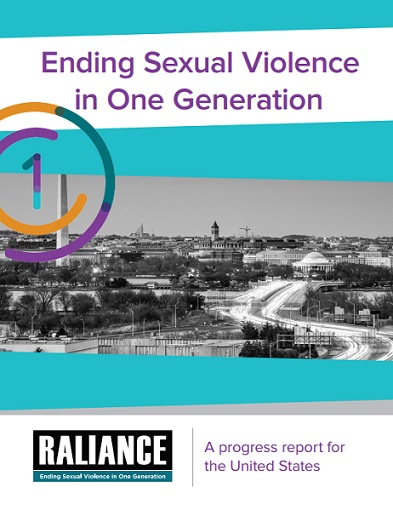Resources Library:
Start a Search:
Queering Reproductive Justice: A Toolkit

This advocacy tool is intended for reproductive rights, health, and justice advocates who want to gain a solid understanding of repro issues within an LGBTQ context. It is also intended to help LGBTQ advocates frame their current work within a reproductive justice framework in order to build crucial alliances and advocate for the repro needs of LGBTQ people.
Race to Lead: Women of Color in the Nonprofit Sector
This report reveals that women of color encounter systemic obstacles to their advancement over and above the barriers faced by white women and men of color. Education and training are not the solution—women of color with high levels of education are more likely to be in administrative roles and are more likely to report frustrations about inadequate and inequitable salaries. BMP’s call to action focuses on systems change, organizational change, and individual support for women of color in the sector.
Raliance Report: Ending Sexual Violence in One Generation
 This report analyzes progress in the movement to end sexual violence and how it is shaping public conversation and, ultimately, our culture in how we address this important societal issue. Although much work remains to be done, significant accomplishments have been made and additional positive changes are underway.
This report analyzes progress in the movement to end sexual violence and how it is shaping public conversation and, ultimately, our culture in how we address this important societal issue. Although much work remains to be done, significant accomplishments have been made and additional positive changes are underway.
Raliance is a collaborative initiative dedicated to ending sexual violence in one generation. Composed of three top sexual violence prevention organizations – the National Sexual Violence Resource Center (NSVRC), the California Coalition Against Sexual Assault (CALCASA) - PreventConnect and the National Alliance to End Sexual Violence (NAESV) – Raliance serves as the central hub for effective allocation and distribution of programmatic funding in sexual violence prevention and as the go-to resource for policymakers, advocates, service providers and the media. Raliance is funded through a $10 million multiyear commitment from the National Football League. The name was inspired by the entity’s intent to rally engagement from stakeholders and align goals and resources behind its overarching mission of putting a stop to sexual violence once and for all. Learn more at Raliance.org.
Reachable: Data collection methods for sexual orientation and gender identity
In the past few years, researchers have begun developing new methods to measure sexual orientation and gender identity. Sexual and gender minorities have often been classified as "hard-to-reach" populations. However, recent developments in data collection methods demonstrate the increasing number of research methodologies available to those seeking a greater understanding of the lived realities of sexual and gender monorities. This report highlights some examples of data collection methods and presents examples of their use around the world.
The audience for this paper is non-researchers who seek a basic understanding of data collection methods regarding sexual orientation and gender identity. This paper is not a review of data collection. Rather it provides a small number of examples of data collection efforts.
Red Flag Campaign Relaunch Webinar

The Red Flag Campaign is an awareness campaign that educates college students about sexual assault, dating violence, and stalking by highlighting the warning signs, or “red flags,” that students may see in a friend’s relationship.
Through using a bystander intervention strategy, the campaign encourages friends and other campus community members to “say something” when they see red flags for dating violence such as emotional abuse, jealousy, isolation, victim blaming, coercion, stalking, microaggressions, and sexual assault.
Launched in Virginia in 2007, the Red Flag Campaign has since spread across the country to over 400 college campuses, military bases and academies, and community-based advocacy agencies in 48 states and Canada. It was created in partnership with college students, college personnel, and community victim advocates, and funded by grants from the Verizon Foundation, Verizon Wireless, Macy’s Foundation, and the Centers for Disease Control & Prevention.
The campaign includes a digital guide for implementation, miniature red flags for raising awareness in highly visible campus locations, and printed posters featuring active bystander responses to red flag statements. In 2022, Action Alliance staff began a process to create two new series of posters and revise the digital Campus Planning Guide to reflect current student experiences. This webinar shares the history of the campaign as well as the revision process and all of the new materials the campaign has to offer.

